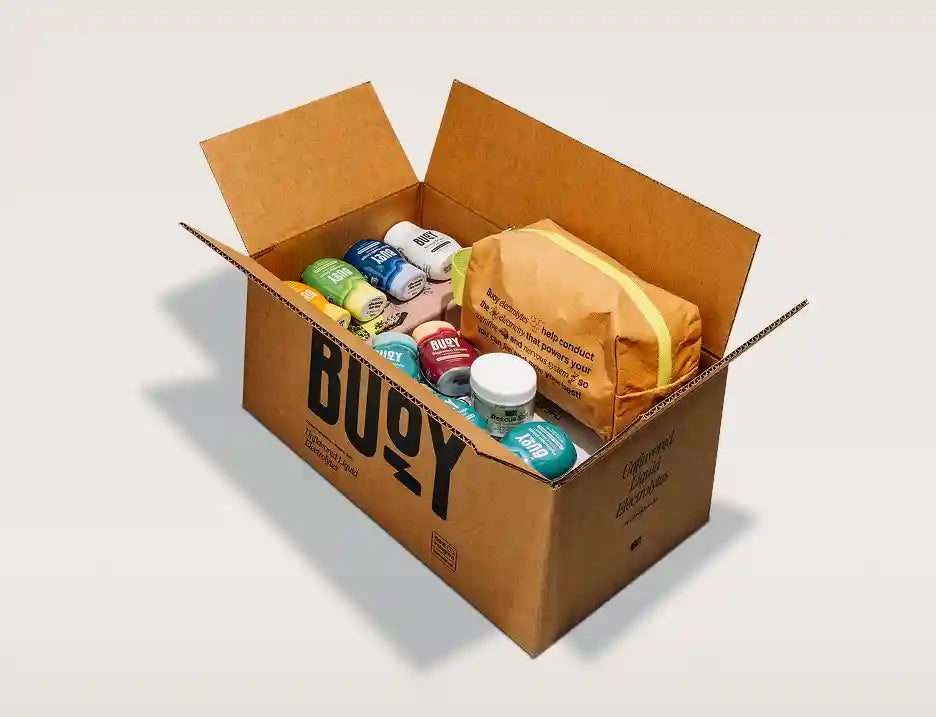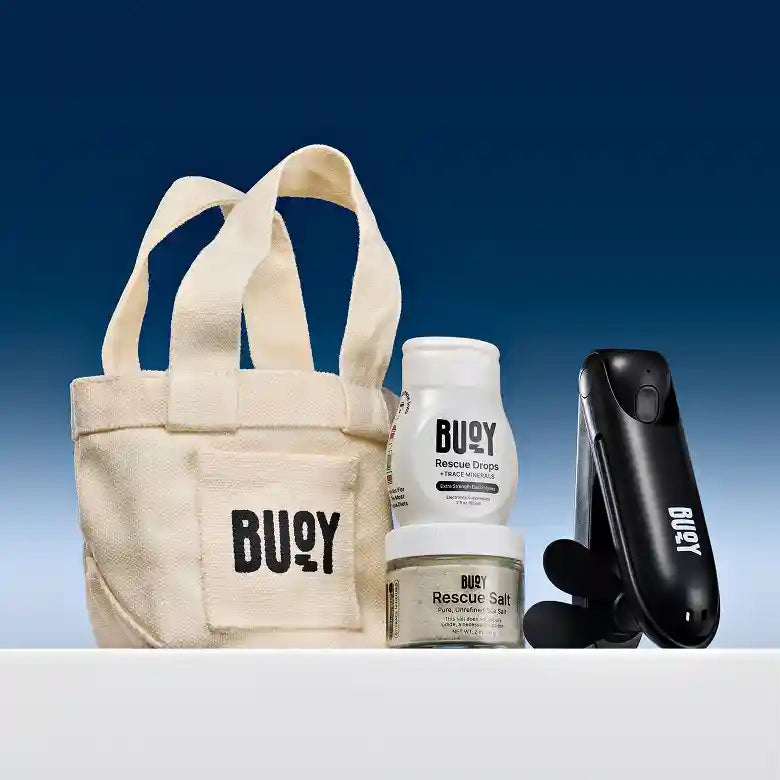
Understanding Nutrient Absorption and How to Maximize Your Diet's Potential
Share
You could be eating all the right foods, loading up on leafy greens, quality proteins, and healthy fats, but if your body isn’t absorbing nutrients well, a lot of that effort might be going to waste. Nutrient absorption is how your body takes the good stuff from your food and uses it to power everything from your muscles to your brain. And while it seems like a built-in process, it can be surprisingly easy to throw off.
Plenty of things impact how well your body absorbs nutrients. Stress, poor gut health, certain medications, or just eating too fast can all mess with the process. That's why understanding what helps and what hurts absorption is worth your time.
Essential Takeaways
- Digestive enzymes help your body break down food efficiently, making it easier to absorb key nutrients from every meal.
- Gut health, food pairings, and lifestyle factors like stress or medications all play a role in how well your body absorbs nutrients.
- Digestion Drops offer a clean, bioavailable way to support better nutrient absorption, especially when digestive challenges or poor gut function get in the way.
If you're trying to get the most out of your food, it starts with making sure your gut is working with you, not against you.
- Slow Down When You Eat
- Don’t Ignore Your Gut Health
- Pair the Right Nutrients Together
- Watch Out for Nutrient Blockers
- Keep Stress in Check
- Limit Overuse of Antacids and Antibiotics
- Know When to Supplement
- Real Food Still Matters
- It’s Not About Perfect Eating
Digestive enzymes play a big role here. These little proteins help break down the food you eat into smaller molecules so your body can actually absorb them. Without enough enzymes, food doesn’t fully break down, and that means nutrients can get missed. Some people naturally produce fewer enzymes. Others have health conditions that affect enzyme production. That’s where something like Buoy’s Digestion Drops can lend a hand. They deliver a blend of plant-based enzymes, herbal extracts, and deep ocean minerals in a fast-absorbing liquid form to support your digestive system from the start.
But enzymes are just part of the story. Let’s talk about what else you can do to make sure your body gets everything it can from your meals.
Slow Down When You Eat

Eating slowly and mindfully gives your body time to begin digestion properly, boosting nutrient absorption and reducing bloating or discomfort.
Chewing your food properly might not sound groundbreaking, but it’s one of the simplest ways to support nutrient absorption. The digestion process starts in your mouth. Saliva contains enzymes that begin breaking down carbohydrates before your food even hits your stomach. Rushing through meals or eating distracted can short-circuit this first step, making it harder for your body to keep up.
Taking time to chew more and be present while eating helps your body stay in the parasympathetic “rest and digest” state. This lets your stomach, pancreas, and intestines work more effectively. Less bloating, less discomfort, more nutrient absorption.
Don’t Ignore Your Gut Health
Your gut isn’t just a digestion machine. It’s a complex system involving bacteria, enzymes, and your intestinal lining, all working together. If your gut microbiome is out of balance or your intestinal lining is inflamed, nutrient absorption drops off fast.
This is where probiotics, fermented foods, and anti-inflammatory herbs can play a role. Foods like kefir, sauerkraut, kimchi, or yogurt help feed the good bacteria. Herbs like ginger, turmeric, and fennel can calm gut inflammation and improve motility. Supporting your gut lining with trace minerals also helps rebuild the foundation of healthy digestion.
Pair the Right Nutrients Together
Some nutrients work better in pairs. Vitamin D helps your body absorb calcium. Vitamin C boosts iron absorption. Fats help your body take in fat-soluble vitamins like A, D, E, and K. When planning meals, it helps to think about combinations rather than just individual nutrients.
For example, adding avocado or olive oil to a salad doesn’t just taste good, it helps your body pull in more nutrients from all those colorful veggies. Drinking a little orange juice with your iron-rich spinach or beans? That boosts iron uptake naturally. These little tweaks can have a big impact over time.
Watch Out for Nutrient Blockers
Not everything in your food plays nice. Some compounds make it harder for your body to absorb nutrients. Phytates, found in grains and legumes, can block mineral absorption like zinc or magnesium. Oxalates in spinach or rhubarb can interfere with calcium.
This doesn’t mean you need to avoid those foods. It’s more about how you prepare and balance them. Soaking beans before cooking, fermenting grains, and cooking leafy greens can help lower the levels of these compounds. Pairing these foods with nutrient boosters like lemon juice or herbs can also offset their effects.
Keep Stress in Check

Chronic stress can disrupt digestion and hinder nutrient absorption—managing stress is just as important as eating well when it comes to supporting overall health.
Chronic stress doesn’t just affect your mood or sleep. It messes with digestion, too. When you're stressed, blood flow moves away from your digestive system, slowing everything down. This can cause bloating, indigestion, and poor nutrient absorption.
Building stress management into your daily routine helps keep your digestive system running more smoothly. That could mean walking after meals, breathing exercises, yoga, or just taking 10 minutes to unplug before you eat. Whatever keeps your nervous system calm is going to help your gut do its job.
Limit Overuse of Antacids and Antibiotics
While medications can be helpful short-term, using them regularly can change how your digestive system works. Antacids reduce stomach acid, which your body needs to break down proteins and absorb B12, iron, and other nutrients. Antibiotics can wipe out both bad and good bacteria in your gut, throwing your microbiome off balance.
If you're taking these regularly, it might be worth exploring alternatives or ways to support your gut during and after use. Adding probiotics, digestive enzyme support, and mineral-rich foods can help restore balance.
Know When to Supplement
Even with a perfect diet, some people need a little help. Health conditions, aging, certain medications, or restrictive diets can make it hard to get or absorb enough nutrients. That’s where targeted supplements can step in. The key is to choose ones that work with your body.
Liquid formats, like Digestion Drops, are up to 3x more bioavailable than pills or powders. That means your body absorbs them faster and with less effort. If you’re dealing with digestive discomfort, gas, bloating, or inconsistent bowel movements, enzyme support might be a good place to start.
Real Food Still Matters
Supplements can help fill gaps, but they don’t replace whole food. Eating a wide range of colorful vegetables, healthy fats, lean proteins, fermented foods, and hydrating fluids gives your body the tools it needs to function well. Each meal is a chance to feed your system in a way that supports absorption.
Focusing on quality, variety, and balance goes a long way. When your body is getting what it needs from real food, supported by smart habits and targeted supplements when needed, nutrient absorption becomes much more efficient.
It’s Not About Perfect Eating
You don’t need to be obsessive or overhaul your entire diet to support better absorption. Small, consistent changes have the biggest impact. Start with chewing more, focusing on gut health, and looking at how you pair foods. If you notice digestive issues or fatigue, it might be worth adding in some support like Digestion Drops.
Supporting nutrient absorption is about working with your body, not fighting it. When digestion runs smoothly, you feel the difference. You’ll have more energy, fewer crashes, better focus, and less bloating. It’s a simple shift that can make a big difference over time.
References:
-
Nourish Icon Consulting. (n.d.). Nutrient Absorption | 7 Ways To Get The Most From Your Meals. Retrieved from https://www.nourishiconsulting.com/nutrient-absorption.
-
Donat. (n.d.). The Importance of Proper Nutrient Absorption. Retrieved from https://www.donat.com/the-importance-of-proper-nutrient-absorption/.
- Plant Based RD. (2023). 10 Tips for Increasing Nutrient Absorption. Retrieved from https://plantbasedrdblog.com/2023/01/10-tips-for-increasing-nutrient-absorption/.




